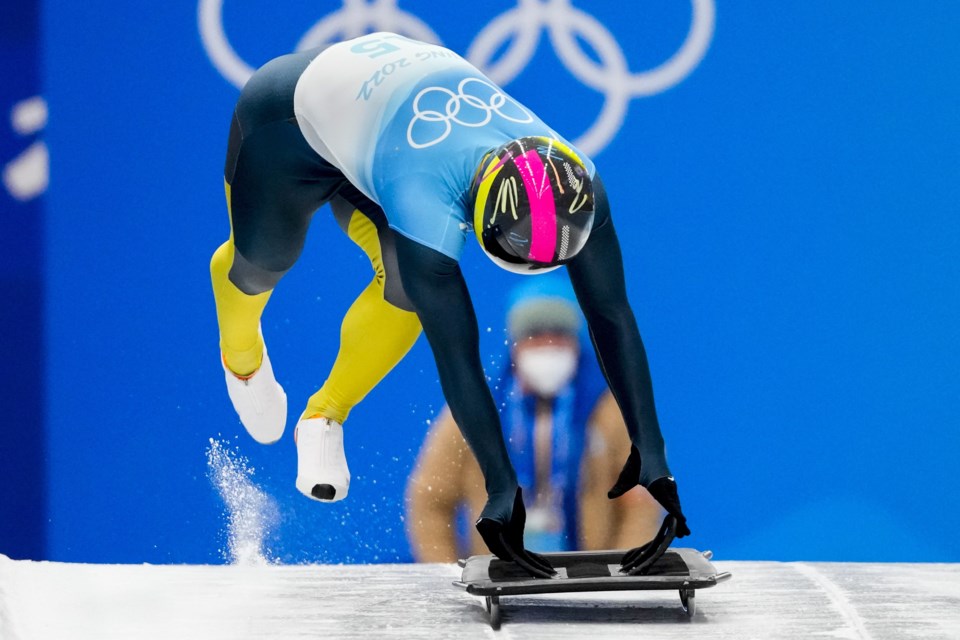BEIJING (AP) — A Ukrainian skeleton athlete flashed a small sign that read “ ” to the cameras as he finished a run at the Beijing Olympics on Friday night, a plea for peace at a time of rising tensions between his country and Russia.
Vladyslav Heraskevych's sign was printed on a blue-and-yellow piece of paper, matching the colors of his country's flag. He did not display the message after his second run of the night, which was his fourth and final run of the Olympics.
“It's my position. Like any normal people, I don't want war," Heraskevych said after he finished competing. “I want peace in my country, and I want peace in the world. It's my position, so I fight for that. I fight for peace."
The gesture came as Russia has amassed over 100,000 troops near Ukraine, in the West that Moscow is planning an invasion. Russia insists it has no such designs but doesn't want Ukraine and other former Soviet countries to be allowed to join the western NATO alliance.
“In Ukraine, it's really nervous now," Heraskevych said. “A lot of news about guns, about weapons, what's to come in Ukraine, about some armies around Ukraine. It's not OK. Not in the 21st century. So I decided, before the Olympics, that I would show my position to the world."
Shortly after the race, the International Olympic Committee said there would be no repercussions for the athlete. There had been a question of whether the body might consider Heraskevych’s act a violation of Rule 50 of the Olympic Charter. That rule, in part, states that “no kind of demonstration or political, religious or racial propaganda is permitted in any Olympic sites, venues or other areas.”
“This was a general call for peace. For the IOC the matter is closed,” the Games’ governing body said Friday night.
Heraskevych earlier said he was not concerned about any possible repercussions.
“I hope the Olympics will (support) me in this situation. Nobody wants war," said Heraskevych, who was not a medal contender. “I hope it helps ... make peace in our country."
The IOC relaxed its rule against protests before the Tokyo Games, allowing athletes to express themselves politically before competitions start.
In the runup to these Games, many braced for potential protests against the host country, China, which has been accused of . It has also come under fire for its polices toward Tibet, its crackdown on freedoms in Hong Kong and the near-total disappearance from public view of tennis player Peng Shuai a former Communist Party official of sexual assault.
led some countries to stage a diplomatic boycott of the Games, while Chinese organizers warned foreign athletes that any statement that goes against Chinese law could be punished.
Meanwhile, the heightened tensions over Ukraine cast a pall over last week’s opening ceremony, when IOC President Thomas Bach implored participating countries to uphold , which calls for a cessation of hostilities during the Games.
Russian President Vladimir Putin, who was in attendance when Bach spoke, has drawn closer to China and some have suggested he may not want to invade Ukraine during the Olympics so as to avoid embarrassing his ally, Chinese President Xi Jinping.
___
AP Sports Writer Graham Dunbar contributed to this report.
___
More AP Olympics: https://apnews.com/hub/winter-olympics and https://twitter.com/AP_Sports
Tim Reynolds, The Associated Press


